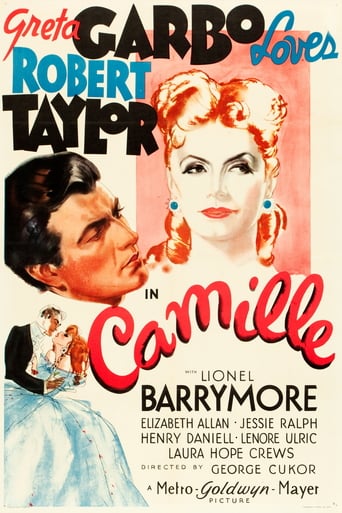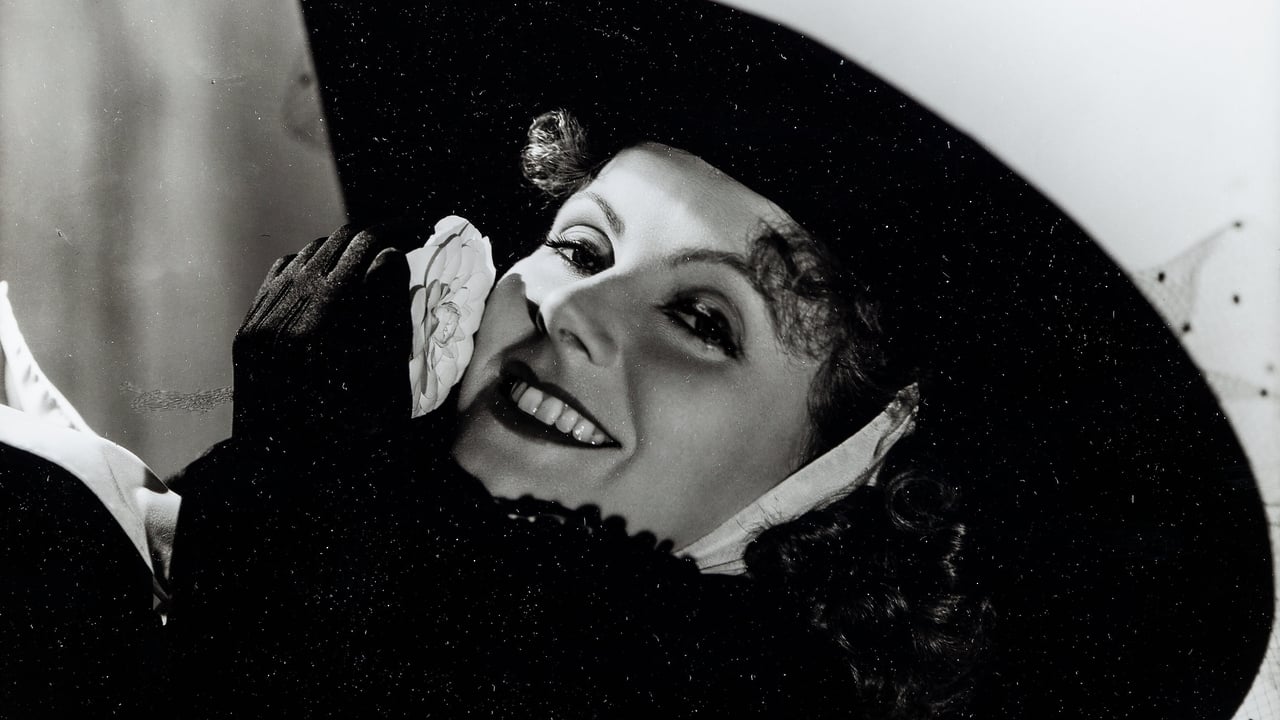writers_reign
Having recently bought a boxed set of eight Garbo talkies ranging from Anna Christie to Ninotchka I've been working my way though them and though the newest is 76 years old it has to be one of the best boxed sets available. Garbo is simply magnificent and capable of transforming dross into gold. This war-horse for example is pure melodrama and with anyone other than Garbo the central role of Marguerite would be risible and laughed off the screen but against all the odds, common sense, intellect, reason, Garbo makes you CARE deeply for this vain creature dying of consumption and, against all the instincts of a lifetime of manipulating affluent men, hopelessly in love with the callow youth who offers puppy-dog devotion. It's yet another tour-de-force from arguably the finest screen actress of them all and that 'all' embraces Bette Davis, Joan Crawford, both Hepburns (Katherine and Audrey) Barbara Stanwyck, down to Meryl Streep. I think there's still plenty of mileage in this enchanting star.
lugonian
CAMILLE (Metro-Goldwyn-Mayer, 1936-37), directed by George Cukor, stars Greta Garbo in what many consider to be her most perfect movie role. Taken from the play and novel "La Dame Aux Camellias" by Alexandre Dumas Files, which was filmed several times during the silent movie era (1915, 1917, 1921 and 1927), this retelling turns out to be one for which Garbo is most famous next to the rising young co-star, Robert Taylor, with the honor of having his name placed above the title under Garbo in the opening credits.Opening title: "1847 - In the gay half-world of Paris, the gentlemen of the day met the girls of the moment at certain theaters, balls and gambling clubs, where the code was discretion -- but their game was romance. This is the story of one of those pretty creatures who lived on the quicksand of popularity - Marguerite Gautier - who brightens her wit with champagne and sometimes her eye with tears." The story begins with Marguerite Gautier (Greta Garbo), a fun-loving Parisian courtesan, buying camellias from a flower woman before entering the theater with her elderly neighbor, Prudence (Laura Hope Crews). Because Marguerite is still single, Prudence has arranged a meeting between her and Baron De Varville (Henry Danielle), the richest man of Paris. While seated in the balcony during the performance of the can-can girls dancing on stage, Marguerite, gazing through her binoculars, captures the attention below of Armand Duval (Robert Taylor), whom she mistakes for the Baron. While Marguerite acquaints herself with Armand, De Varville meets with Olympe (Lenore Ulric), in a box seat initially intended for Marguerite. When the mistakes are finally realized, Marguerite and Armand part company. During the passage of time, Marguerite becomes the Baron's mistress, using his finances to help pay for her debts. Later while at an auction, Marguerite meets Armand once again, this time discovering they are meant for each other. Because of her ill health with tuberculosis, Armand takes her to the country to recover, where romance blossoms. During Armand's brief absence, his father (Lionel Barrymore) appears to see the sort of woman his son wants to marry and decide whether she's right for him or not.A worthy follow-up to Garbo's previous classic literary title heroin of Leo Tolstoy's "Anna Karenina" (MGM, 1935). Though customary at the time where studios basically reuse the same supporting players in one film after another for box-office assurance, MGM didn't make any attempt recalling those notable players from "Anna Karenina" as Basil Rathbone to play the Baron; Maureen O'Sullivan (Nichette) and May Robson playing Marguerite's loyal nurse and friend, Nanine, to appear on CAMILLE. How different the film might have become without the final choices of Henry Daniell, Elizabeth Allan and Laura Hope Crews. The strongest of this trio happens to be that of Henry Daniell, whose face and mannerisms are enough to bring shivers up and down one's spine. Because of this, his performance is as perfect as Garbo's. Their most classic scene together comes as the Baron surprises Marguerite by his unexpected presence, and preventing her from seeing her lover by playing the piano concerto louder and louder to drown out the bell ringing sounds outside the door, causing Marguerite, wanting desperately to be with the man she loves, to stand alongside the piano laughing, pretending to be entertained as she holds in her true emotion of despair. This scene along is evidence as to what a remarkable actress Garbo is and why CAMILLE is often sited to be her best work. While Jessie Ralph provides her usual acting chores of a caring nurse, it's interesting how Elizabeth Allan, having enacted a major part in the lavish screen adaptation to Charles Dickens' literary work of A TALE OF TWO CITIES (MGM, 1935), to have her character of Nichette, Marguerite's closest and dearest friend in Paris, to be surprisingly short, consisting of two brief scenes lasting no more than two minutes.CAMILLE should go on record of being one of the few Garbo movies where she appears in the very first scene rather than the traditional long-awaited ten to 15 minute star entrance. Carrying the role for nearly 114 minutes, CAMILLE is Garbo's show from start to finish. Even when she's off screen, it's still about her. Garbo may have lost her Academy Award nomination as Best Actress for her performance, but it's this type of sacrificing heroine, which she has played several times before, plus George Cukor's masterful direction, Herbert Stothart's haunting musical score, and the set decoration's recreation of 19th century Paris that has maintained its success over the years. Not only has CAMILLE become a perennial favorite on broadcast television's late show during the sixties, seventies and eighties, it's also enjoyed great popularity in New York City revival movie houses around that same time as well. It's hard to forget watching and hearing attendees, young and old alike, applauding the moment Garbo's face first appears on screen. Available to video cassette and later DVD format, CAMILLE and the legend of Garbo continues to entertain a new generation of movie lovers and film historians whenever it appears on Turner Classic Movies cable channel. (***1/2).
PWNYCNY
This is a strong movie featuring outstanding performances by the entire cast. Robert Taylor performance is particularly noteworthy as well as is Henry Daniell's. Greta Garbo of course is wonderful. But this is Robert Taylor's movie. His performance is compelling, evocative, and powerful. He dominates the movie. And Henry Daniell is the perfect foil for Mr. Taylor as both men vie for the affections of a certain beautiful woman. The dialogue is snappy and the cinematography impressive. But those are secondary to the story which is dramatic without being becoming sentimental. The interaction between Garbo and Taylor and Daniell is intense and makes this movie one of the better works of drama.
lhhung_himself
I have always wondered about the fascination with Greta Garbo. There is, of course, her natural beauty, but her acting skills have always seemed to me to be quite limited. She always seemed to be over-acting (especially that annoying affected laugh of hers) and never emotionally connected.Camille was such a surprising revelation. Garbo's natural distance works to advantage in the role of the world-weary Marguerite. However, in Camille, she displays true warmth and genuine affection - the glance at Gaston when she finds that he has filled her pocketbook is subtle and touching.There is not much to the story - it is a typical melodrama but it is told well. Other than the slightly dated comic relief provided by Garbo's hangers-on, the actions and emotions are spot-on and believable. Robert Taylor gives a wonderful performance as the young suitor, and Barrymore, Daniell and O'Malley provide great support.However, it is Garbo who completely dominates - especially in the last scene. The ending of the film is one of the best if not the best romantic ending I have ever seen - rivalled perhaps only by City Lights and Casablanca. The final serene look on Garbo's face as the screen fades to black is one that is unforgettable.


 AD
AD



